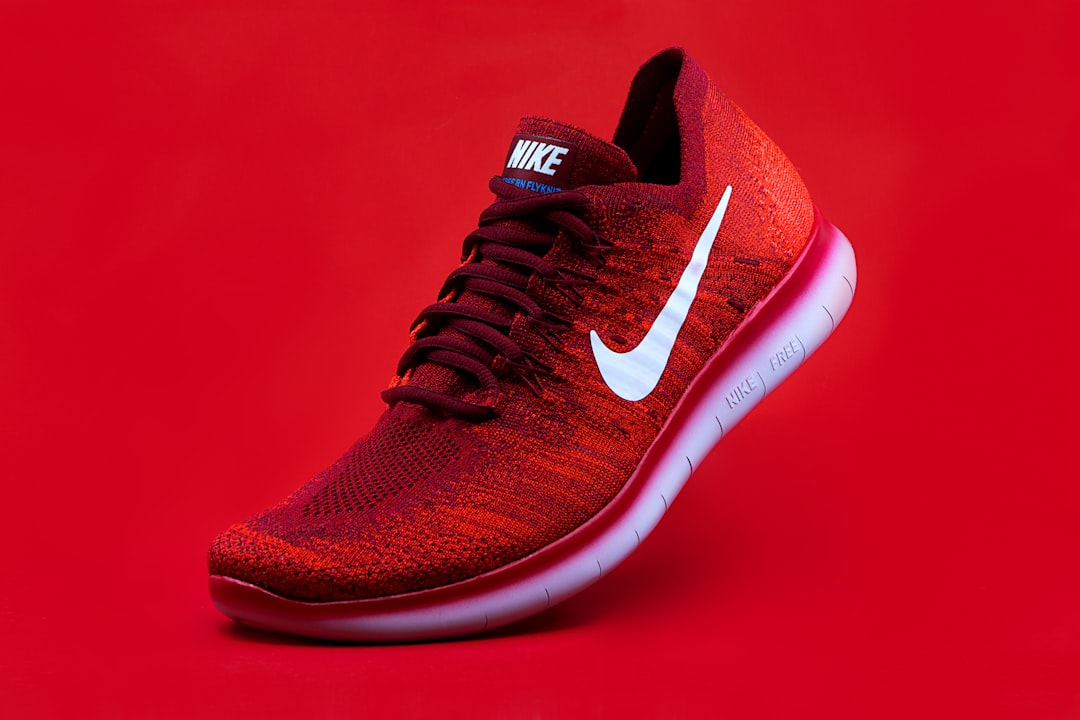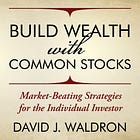Summary
NIKE, Inc. is a dividend-paying large-cap stock in the consumer discretionary sector’s footwear and apparel industries.
The company designs, develops, markets, and sells athletic footwear, apparel, equipment, accessories, and services worldwide.
Because NIKE’s returns on management remain world-class and its downside risks are low, its valuation reflects a perpetually overbought or undersold stock.
In this updated research report, QVI reiterates its rating on NIKE in the Concentrated Portfolio.
When referencing this report, premium (paying) subscribers can access their Quality Value Investing (QVI) Glossary of Investing Terms and Metric Targets. Unless noted, all data presented is sourced from Seeking Alpha Premium as of the market close on August 24, 2023, and intended for illustration only. If reading this in your email, consider viewing in the Substack App for a more inclusive experience.
NIKE Value Proposition
QVI Research Report’s value proposition section provides a brief synopsis of the company’s business model, major-exchange listing, stock symbol, market capitalization, and dividend-paying status. In addition, it defines the competitive advantages of a company’s products or services to its customers compared to the industry, including the stock’s historical performance vs. the sector and market.
NIKE, Inc. NKE 0.00%↑ is a dividend-paying large-cap stock in the consumer discretionary sector’s footwear and apparel industries. NKE was added to the QVI Concentrated Portfolio on June 6, 2017, at a dividend- and split-adjusted $49.31 a share.
NIKE, Inc., together with its subsidiaries, designs, develops, markets, and sells athletic footwear, apparel, equipment, accessories, and services worldwide.
The company provides athletic and casual footwear, apparel, and accessories under the Jumpman trademark and casual sneakers, apparel, and accessories under the Converse, Chuck Taylor, All Star, One Star, Star Chevron, and Jack Purcell trademarks.
It also sells a line of performance equipment and accessories comprising bags, sport balls, socks, eyewear, timepieces, digital devices, bats, gloves, protective equipment, and other equipment for sports activities under the NIKE brand and various plastic products to other manufacturers.
In addition, the company markets apparel with licensed college and professional team and league logos, sells sports apparel, and licenses unaffiliated parties to manufacture and sell apparel, digital devices, and applications, and other equipment for sports activities under NIKE-owned trademarks.
It sells its products to footwear stores, sporting goods stores, athletic specialty stores, department stores; skate, tennis, and golf shops, and other retail accounts through NIKE-owned retail stores, digital platforms, independent distributors, licensees, and sales representatives.
NIKE, Inc. was founded in 1964 and is headquartered in Beaverton, Oregon, USA.
QVI’s value proposition elevator pitch for NIKE:
NIKE’s Swoosh is the moat, and it’s as wide as the logo is famous.
Performance vs. Sector and Market
The chart below illustrates NKE’s performance against the Consumer Discretionary Select Sector SPDR® Fund ETF (NYSE: XLY) and the SPDR® S&P 500 ETF Trust (NYSE: SPY) since being added to the QVI Portfolios in June 2017.
For example, after outperforming during most of the coverage timeline, NKE has matched its sector and the broader market in total return.
Due Diligence Resources
For a more in-depth analysis of the all-important value proposition, visit NIKE’s investor relations webpage and its most recent Form 10-K Annual Report submitted to the US Securities and Exchange Commission or SEC.
QVI’s value proposition rating for NIKE: Bullish.
NKE Total Return vs. XLY and SPY
NIKE Inc (NKE) Total Return: +100.20%
Consumer Discret Sel Sect SPDR ETF (XLY) TR: +94.72%
SPDR S&P 500 ETF Trust (SPY) Total Return: +103.00%
Since June 6, 2017 (as of August 24, 2023)Earn premium subscription rewards when referring friends, family, or colleagues to QVI:
NKE Shareholder Yields
QVI Research Report’s shareholder yields section uncovers the equity bond rate of the company’s common shares. It aims to quantify the yields on earnings, free cash flow, and dividends to measure how the targeted stock compares to the prevailing yield on the 10-Year Treasury benchmark note.
Earnings and Free Cash Flow Yields
The chart below demonstrates that NKE’s earnings yield traded below the QVI targeted floor at 3.31%. In addition, at 3.18%, NKE’s free cash flow yield also traded under the threshold.
As inverse valuation multiples, the weighted shareholder yields suggest that NKE trades at a premium to earnings and free cash flow. QVI will further explore valuation multiples later in this report.
Dividend Yield
NIKE offers a cursory forward dividend yield of 1.04%, supported by a moderate 41.02% payout ratio, thus indicating a dividend rate with room for additional annual increases.
NKE yielded 2.76% from an annual payout of $1.36 on a split- and dividend-adjusted cost basis of $49.31 per share on June 6, 2017, the initial date of QVI’s real-time purchase of a slice of the company. Thus, the yield-on-cost basis was +172 basis points (bps) above the forward yield.
Average of Shareholder Yields
Quality Value Investing takes the average of the three shareholder yields to measure how the stock compares to the prevailing yield of 4.24% on the 10-Year Treasury benchmark note. For example, the average shareholder yield for NKE was 2.51% or -173 bps below the 10-Year and 3.08% or -116 bps below the Treasury yield when using QVI’s yield-on-cost basis.
QVI’s shareholder yields rating for NKE: Neutral.
NKE Shareholder Yields
NIKE Inc (NKE) Price: $97.65
NIKE Inc (NKE) Earnings Yield: 3.31%
NIKE Inc (NKE) Free Cash Flow Yield: 3.18%
NIKE Inc (NKE) Dividend Yield: 1.04%
One-Year Trailing (as of August 24, 2023)NIKE Fundamentals
QVI Research Report's fundamentals section measures the performance strength of the company's senior management by analyzing revenue growth, net profit margin, and returns on equity and invested capital.
Revenue Growth and Net Profit Margin
Per the chart below, NIKE had a three-year annualized mid-single-digit revenue growth of 4.83%, underperforming the +7.28% median growth of the consumer discretionary sector.
Farther down the income statement, NIKE had a trailing three-year near double-digit net profit margin of 9.90%, outperforming the sector's median net margin of 4.19%
Returns on Equity and Invested Capital
NIKE's management produced a trailing three-year return on equity or ROE of 33.84%, doubling the targeted threshold and tripling the sector's median ROE of 10.84%.
Stock buyback programs often elevate ROE. For example, NIKE's board of directors authorized nearly $5.5 billion in repurchases for the twelve months ending May 2023. However, are they buying back the shares at value prices on behalf of shareholders?
At 20.85%, NIKE's three-year return on invested capital, or ROIC, was above the QVI threshold and outperformed the sector's median ROIC of 6.01%, indicating that its senior executives are superior capital allocators.
In addition, NIKE's ROIC exceeded its weighted average cost of capital, or WACC, of 11.39%. (Source of WACC: GuruFocus).
Positive revenue growth, plus sector-beating profit margins, return on equity, and return on invested capital, suggest that NIKE's management continues its long-tailed history of second-level performance in the Beaver State.
QVI's fundamentals rating for NIKE: Bullish.
NKE Returns on Management
NIKE Inc (NKE) Revenue Growth: +4.83%
NIKE Inc (NKE) Profit Margin: +9.90%
NIKE Inc (NKE) Return on Equity: +33.84%
NIKE Inc (NKE) Return on Invested Capital: +20.85%
Three-Year Trailing (as of August 24, 2023)NKE Valuation, Risks, and Investment Thesis
Next, QVI dives into the valuation multiples, downside risks, and overall investment thesis of NIKE, Inc. (NKE), including potential catalysts. So, let’s dig further after reading the required disclosures and background information.
Disclosure: I/we have a beneficial long position through the direct ownership of common shares of NKE in our family portfolio. I wrote this report myself, and it expresses my own opinions. I am not receiving compensation for it other than from Substack paid subscriptions. I have no business relationship with any company whose stock is mentioned in this article.
Additional Disclosure: Quality Value Investing by David J. Waldron’s primary ticker research reports are for informational purposes only. The accuracy of the data cannot be guaranteed. Narrative and analytics are impersonal, i.e., not tailored to individual needs nor intended for portfolio construction beyond his family portfolio, which is presented solely for educational purposes. David is an individual investor and author, not an investment adviser. Readers should always engage in their own research or due diligence and consider (as appropriate) consulting a fee-only certified financial planner, licensed discount broker/dealer, flat fee registered investment adviser, certified public accountant, or specialized attorney before making any investment, income tax, or estate planning decisions.
About the Writer
David J. Waldron is the contributing editor of Quality Value Investing, and author of the international-selling book Build Wealth with Common Stocks: Market-Beating Strategies for the Individual Investor. David’s mission is to inspire the achievement of his readers’ financial goals and dreams. His work has been featured on Seeking Alpha, TalkMarkets, ValueWalk, MSN Money, Yahoo Finance, QAV (Australia’s #1 Value Investing Podcast), Money Life with Chuck Jaffe, LifeBlood with George Grombacher, The Acquirer’s Multiple, Amazon.com, Barnes & Noble, Apple Books, the BookLife Prize, and Publisher’s Weekly. David received a Bachelor of Science in business studies as a Garden State Scholar at Stockton University and completed The Practice of Management Program at Brown University.
Bonus: Founding Subscribers of QVI on Substack are eligible to receive a personalized complimentary copy of the case laminate hardcover edition of the book from the author.







